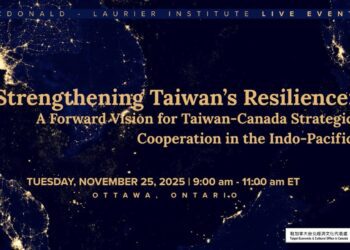Writing in Postmedia papers, MLI Managing Director Brian Lee Crowley says Parliament’s budget watchdog is asking the wrong questions on high rates of sick leave in the federal civil service.
Crowley says that, by not considering why sick leave is higher for bureaucrats than in the private sector, the Parliamentary Budget Officer’s recent report fails to determine how to get better value for taxpayers.
As it stands now, he says, the PBO is overlooking the possibility that Canadians aren’t getting good enough value from workers who are off sick.
The Ottawa Citizen, the Vancouver Sun, the Montreal Gazette, the Leader Post, the Province, the Star Phoenix and the Edmonton Journal ran an edited version of this column.
The National Post’s Chris Selley also picked up the column in his Full Pundit feature on July 21.
By Brian Lee Crowley, July 18, 2014
If you go to the dentist for a filling and she doesn’t show up because she’s not feeling well, you don’t expect to be billed for the service as you leave. But if you were asked to pay anyway because you had planned to pay for the filling and therefore paying doesn’t leave you any worse off than before, you get the logic of the recent report of Jean-Denis Frechette, the Parliamentary Budget Officer (PBO), about public service sick leave.
Oh wait. You don’t get the logic? Good. Because there is precious little of it.
The PBO has stepped into a controversy between the Harper government and its civil servants over sick leave. Treasury Board President Tony Clement says that the system is archaic, costly and undisciplined. The public service unions are resisting reform; that’s their job.
Speaking of jobs to be done, the PBO is supposed to bring a non-partisan and analytical view to budgetary and fiscal matters to illuminate parliamentary debates about such issues. At its best the PBO should provide MPs with a credible, thoughtful, fact-based common starting point for parliamentary debate. As Daniel Patrick Moynihan once so sagely remarked, you are entitled to your own opinions but you are not entitled to your own facts.
But the usefulness of the PBO’s work arises as much from the quality of the questions it asks as from the quality of the answers it gives. And that brings us back to the debate over sick leave in the public service.
The PBO is arguing that there is little “incremental cost” to civil service sick leave. By that he means few absent civil servants are replaced by temporary workers, hence the government (and taxpayers) are no worse off than they were before. They were going to pay that worker that day’s wages regardless.
But the employment relationship is not a one-way obligation but an exchange of value. To go back to my example, the dentist is only entitled to bill me when she performs a service. If I don’t get the service and I have to pay the bill regardless, I am left worse off because I have paid but my tooth remains unfilled. Ditto for the carpenter who doesn’t show up to build my deck, the plumber who doesn’t show up to fix my pipes and so forth.
If a public servant (or any employee) doesn’t show up for work, gets sick pay, and there is no money in the budget for replacement workers, several things can happen. One is the work won’t get done. Another is that other workers or supervisors will shoulder an extra load. A third possibility is that no one will notice and nothing will remain undone—a clear signal that the employee is not providing a service that anyone needs. In all three cases, someone (clients, colleagues or taxpayers) is bearing a cost, but none of those costs are “incremental increases” to the government’s budget.
That doesn’t make them disappear. It just means you’re not counting the real costs correctly. And all of this is true whether the employee is genuinely sick or not—I am not contesting the value of sick leave, just underlining that every benefit has a cost. Of course a healthy employee who nonetheless takes sick leave is abusing that entitlement, but that is a separate issue.
The PBO will protest that he specifically said productivity was not the subject of his report. But surely he has an obligation to clarify the debate by asking, and answering, the questions that really matter. What are those questions? A few might be: what are the underlying causes of high workplace illness in the public compared to the private sector? How might we get more value out of the public service? And can we deal better with poor performance by public servants? Those would be reports worth reading.
Brian Lee Crowley (twitter.com/brianleecrowley) is the Managing Director of the Macdonald-Laurier Institute, an independent non-partisan public policy think tank in Ottawa:www.macdonaldlaurier.ca.




